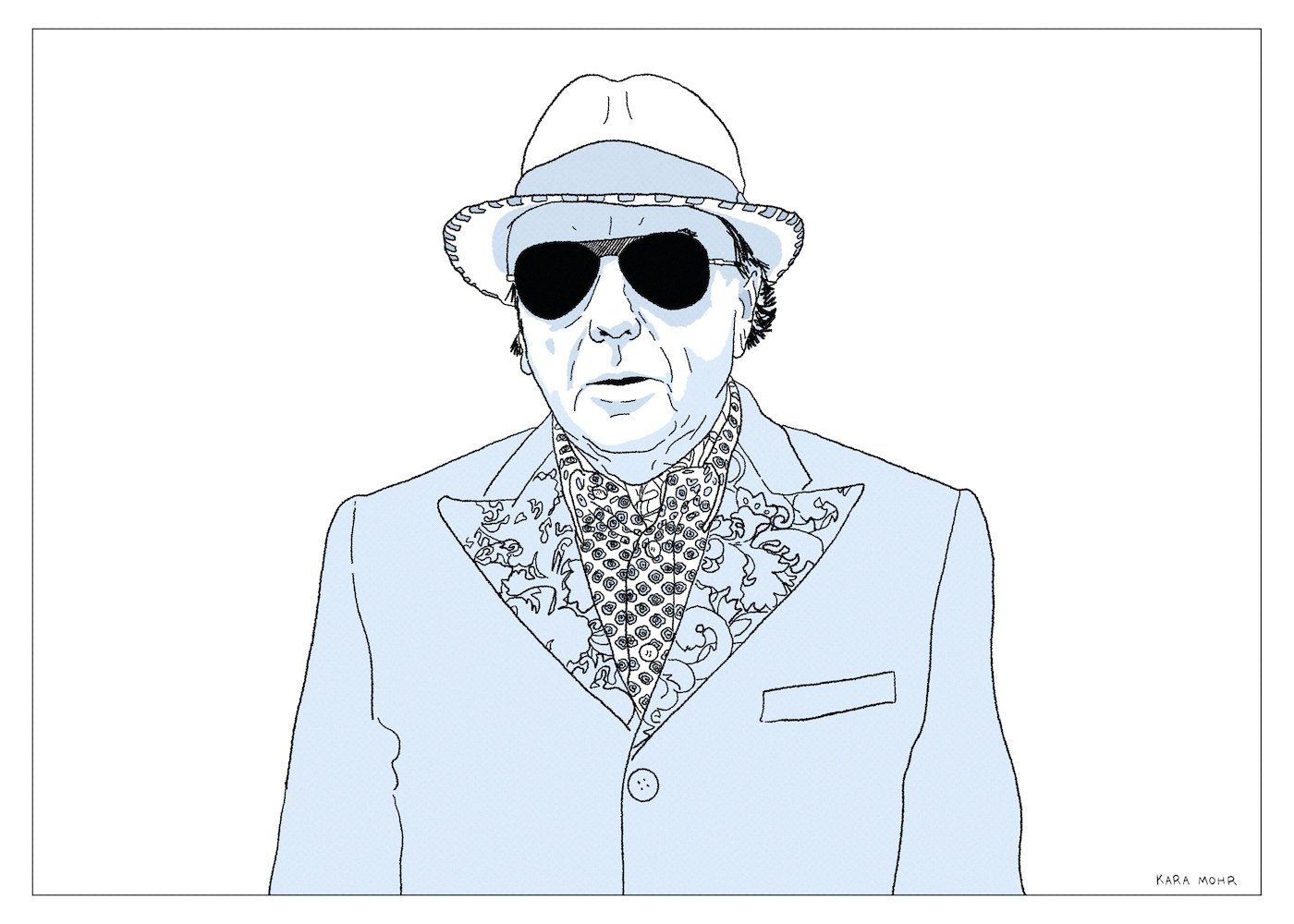
Van Morrison “What’s It Gonna Take?”
“Somebody said it was about the data.” It’s just one, of many, unimaginable lines from “What’s It Gonna Take?” There are other stranger lyrics on this album. Angrier couplets. Sadder admissions. But it’s the way he sings that last word — “Day-Tah.” Sharp consonants. Accent on both syllables. It’s not simply that I could not connect the guy who had spent decades searching for the mystic to this much older guy searching for statistical confidence. It was also the precision of his enunciation. The greatest singing mumbler, growler, la la la-ler I have ever heard was legendary for how he almost never enunciated — how he was more interested in sound and feel than in the words themselves. But with that single line, it became obvious to me that something was off. Very off. That a switch had flipped. And while I feared the worst for the rest of the album, I clung the thinnest strand of good faith. I hoped and prayed that there were other, plausible explanations for the Day-Tah.
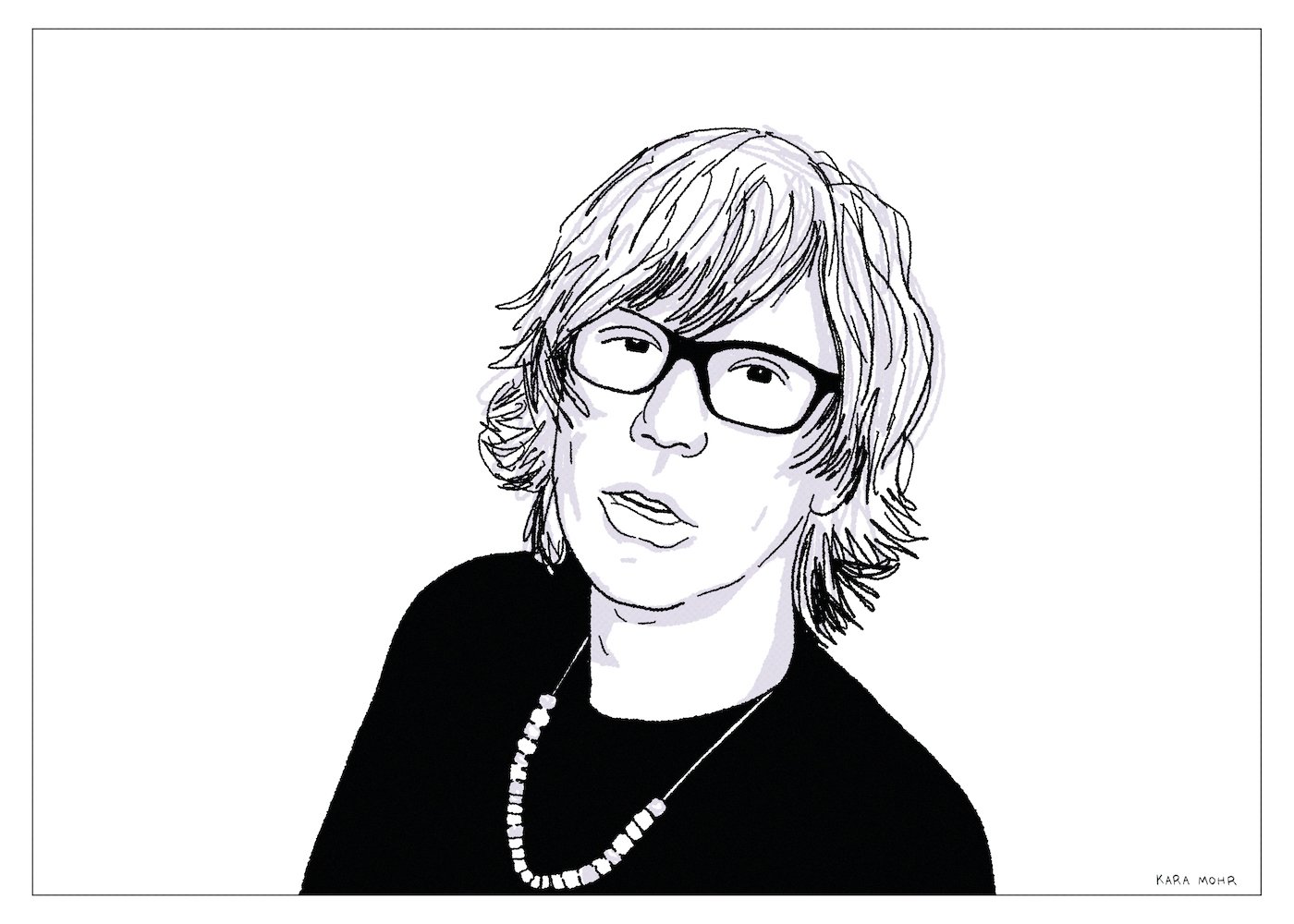
Thurston Moore “Demolished Thoughts”
More than any American Indie band from the Eighties, it is Sonic Youth who cast the brightest light and deepest shadow. Kim, Thurston, Lee and Steve broke rules and made albums of consequence. They were anti-establishment, even when they became the establishment. And they were groundbreakers in spite of their traditionalism — four pieces, two guitarists, one bassist, one drummer. But, as much as for their music, Sonic Youth was important because of Thurston and Kim — how they looked, how they acted and, most of all, what they signified about marriage and partnership. For every person who’d actually listened to “Daydream Nation” or “Sister,” there were dozens more who knew about Kim and Thurston. And every one of them knew intuitively — and with great certainty — that they were a marital ideal. Until they weren’t.
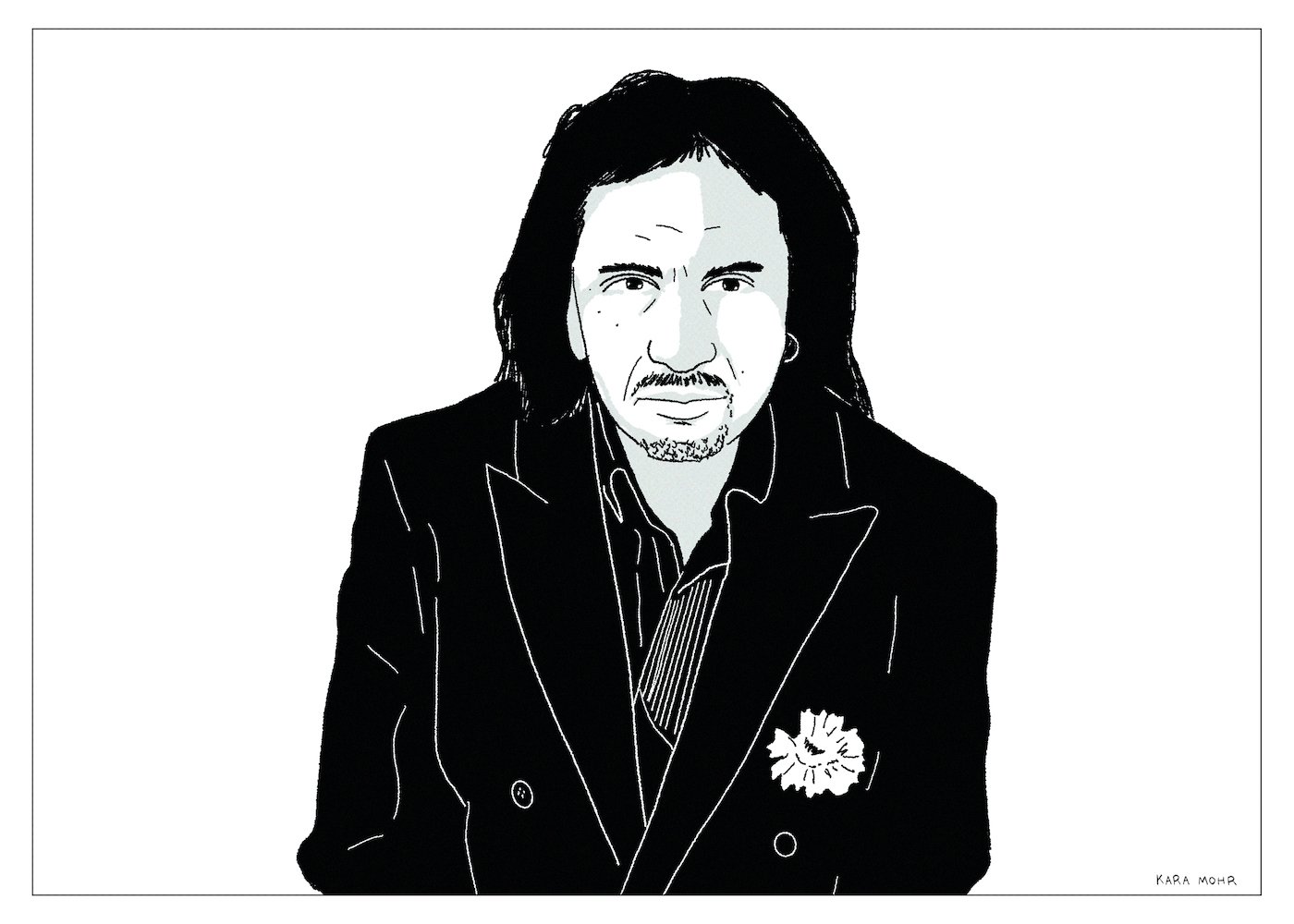
Gene Simmons “Asshole”
Since “Psycho Circus” — twenty-five years ago and counting — KISS has released exactly two studio albums. During that time, Gene Simmons has been a licensor of merchandise, a part time record label owner, a television and film producer, an occasional actor and, of course, a reality TV star. On the one hand, he’s become a guy who cable news calls in for a provocative quote and a funny face — a post-middle-aged braggart in shades who used to wear makeup in “that band.” On the other hand, he is still the same exact guy who’d gotten famous in 1975 — a joker, a demon, a ladies man, a womanizer, a capitalist. But, as it always does, the zeitgeist moved on. It’s no longer 1975, or 1984 for that matter. And so what seemed more charming back then appears less so decades later. We had different names for guys like him back then. But, by 2004, it was all a lot clearer. Gene Simmons was an asshole. And apparently Gene Simmons did not disagree.
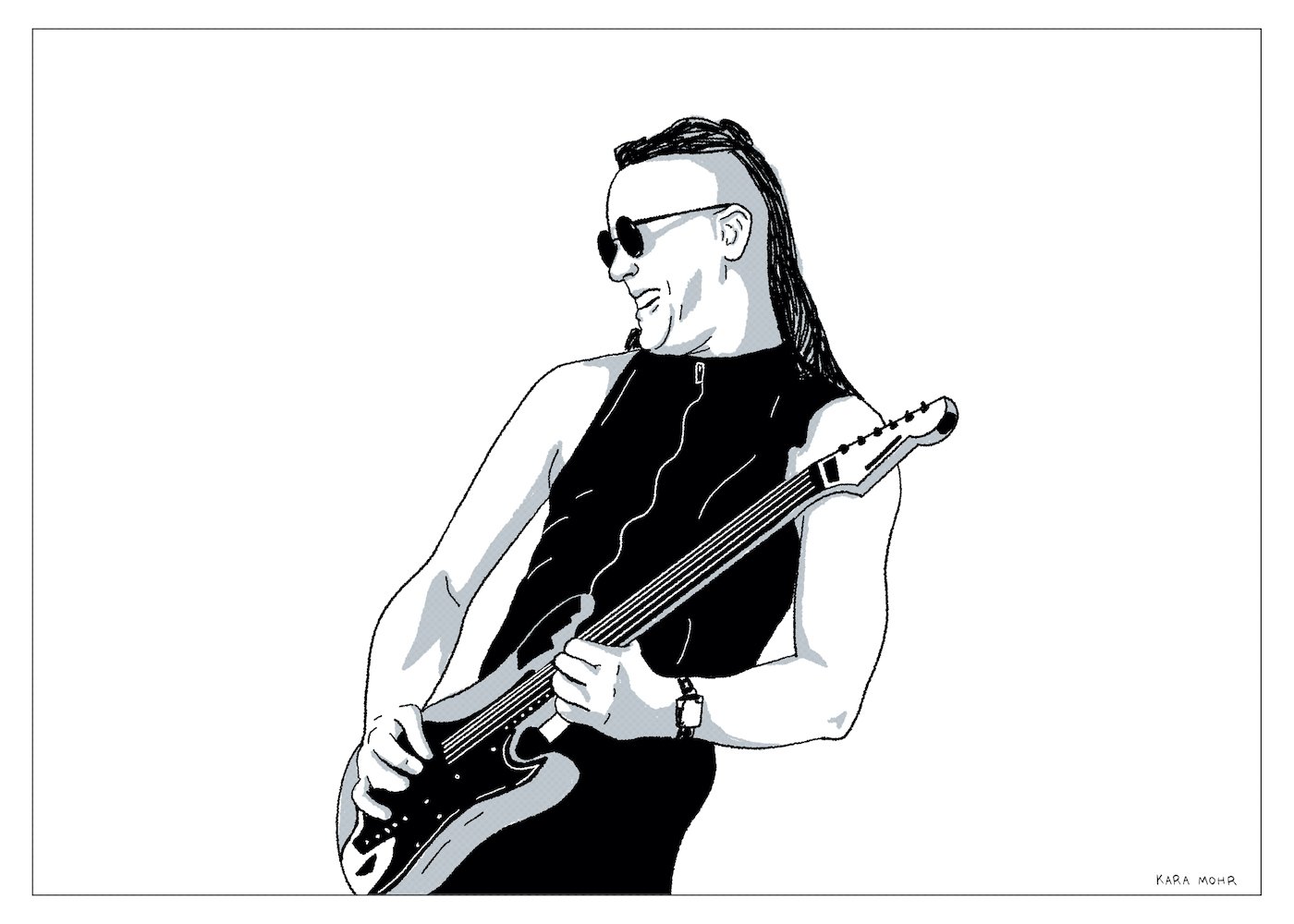
Todd Rundgren “No World Order”
By 1992, Todd Rundgren — the guy who kind of, sort of invented Power Pop, who sang like Carole King, who could play any instrument, and who made Meat Loaf sound like a bat out of hell — was a middle-aged, former Rock star, former producer, father of two living in Marin County, California. If he’d proven anything during the previous decade, it was that he was deeply interested in the intersection of music and technology and largely disinterested in his own commercial prospects. Which meant that, if you were Warner Brothers Records, based in Burbank, California, and trying to sell a lot of albums, you probably wanted to steer clear from him. But, if you were Philips Electronics, based in Amsterdam, and you wanted to promote your new CD-i (compact disc interactive) players and discs, Todd Rundgren was definitely your guy.
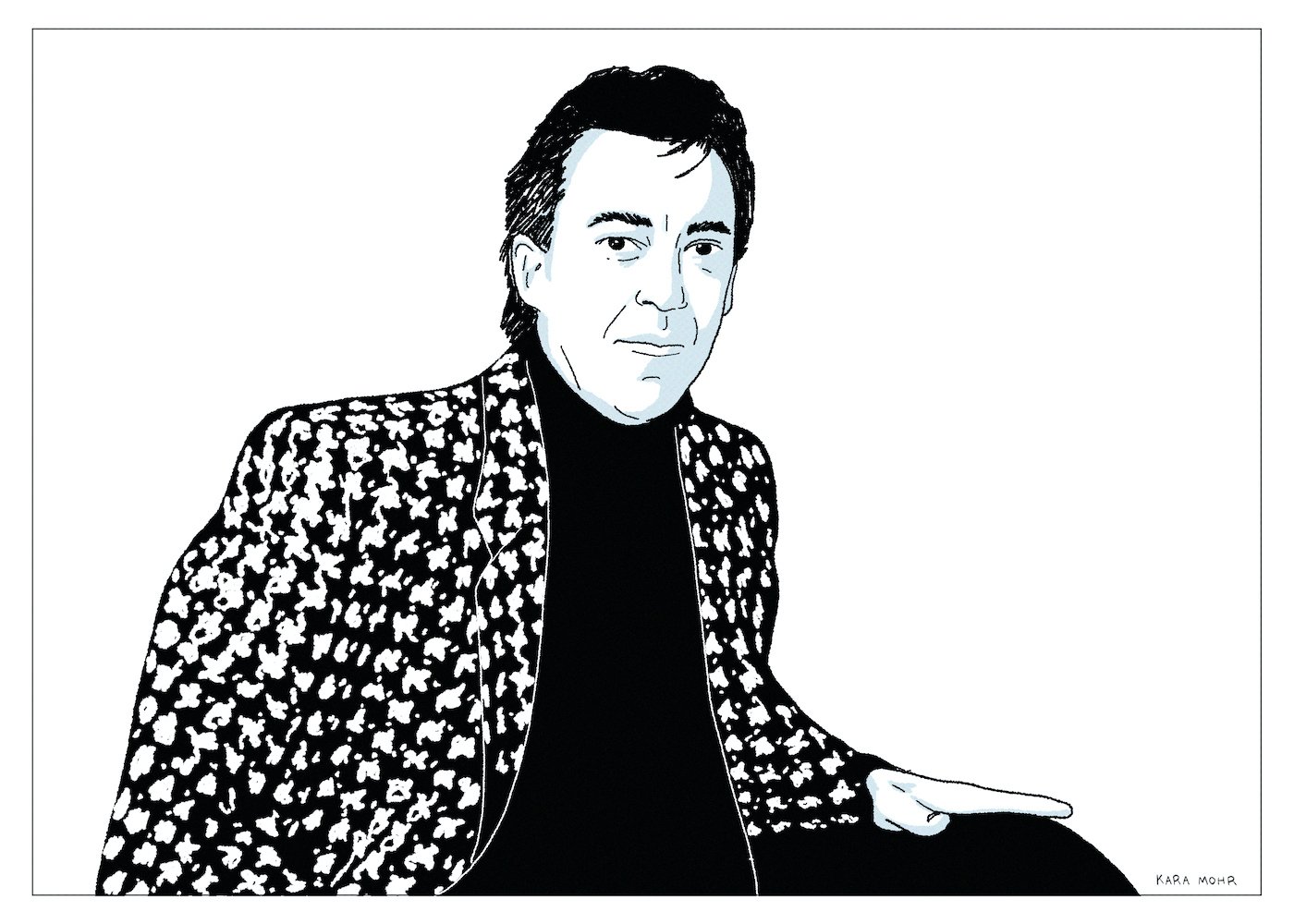
Boz Scaggs “Other Roads”
Though today he is known as a Steely Dan adjacent, dollar bin staple, Boz Scaggs is truly a man of many gifts. He possesses a soulful tenor, dipped in Van Morrison and glazed in Al Green. He has a knack for arrangements, for knowing when to let a song skate around and when to bring it back home. But his forte really seems to be some combination of a casual, Northern California vibe alongside the steely precision of his playing. Boz made music that might not thrill, but would almost always delight. It was music that thrived just in front of the background. There was really no one like Boz Scaggs. He was more successful than he was famous, though he was, for some time, also famous. He was also the kind of star who made the kind of music that could have only succeeded between 1976 and 1980. As a result, his celebrity was short lived. Once the calendar turned to 1981, Boz disappeared for seven long years. The guy that returned was less a Rock Star and more a Bay Area impresario. Well dressed. Wine curious. Affluent. Self-assured. Still totally casual and completely precise.
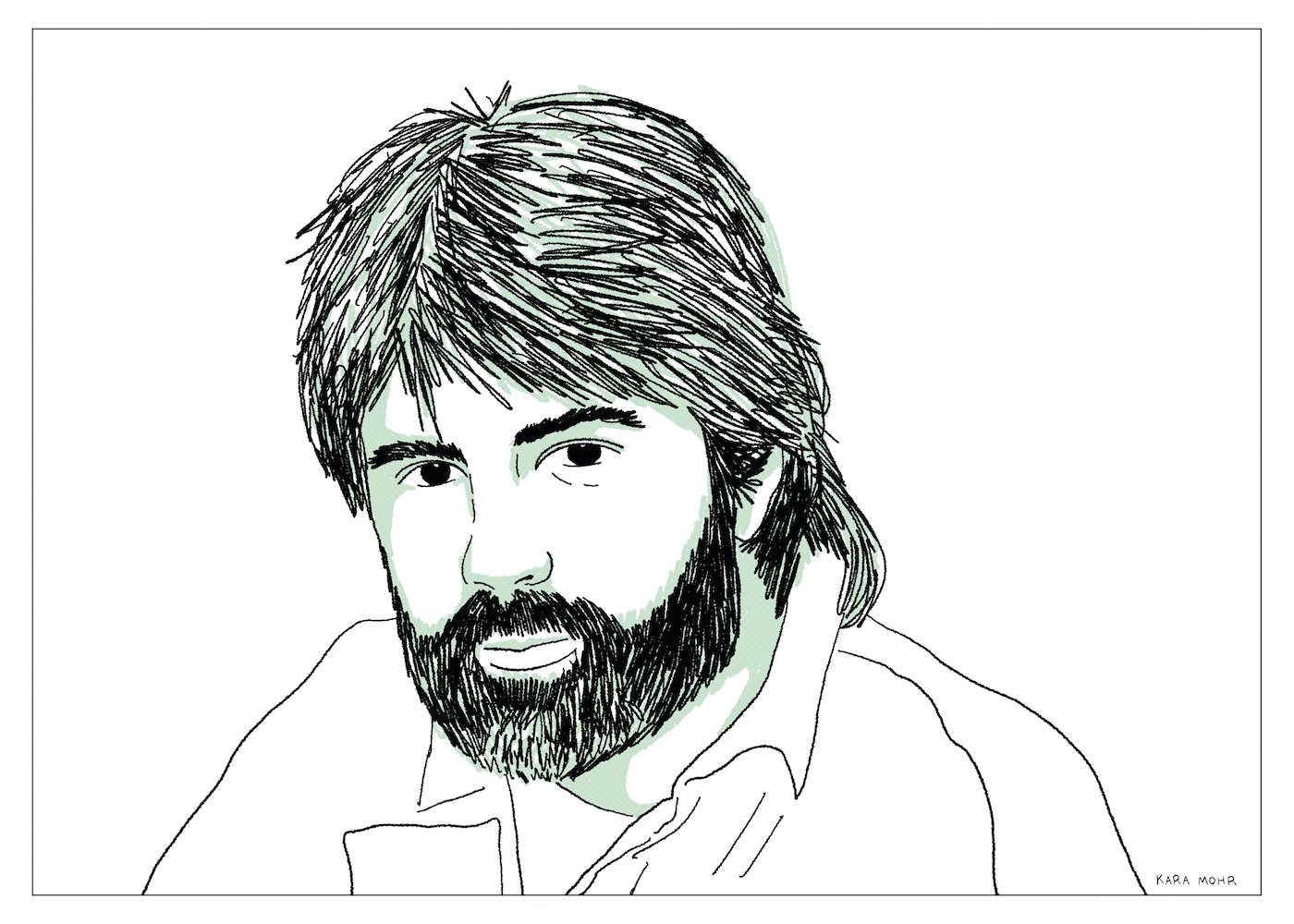
Michael McDonald “Blink of an Eye”
There’s an aphorism that goes something like, “Brad Pitt is a character actor in a leading man’s body.” In music, there’s no direct equivalent for the Pitt aphorism. There are, of course, shy or mercurial singers — Bob Dylan and David Bowie fit that bill. But, solo artists, almost by definition, cannot be reluctant frontmen because they have no “back” to blend into. They are not part of a group — they are the show. The same applies to lead singers in bands, albeit for different reasons. There is really no such thing as a grudging frontman. A lead singer has to want it. Privately, they can be shy and awkward like Farrokh Bulsara, but when they hit the stage they have to be Freddie Mercury. That’s how it works. But, like all statutes, there are very rare exceptions. In the case of Rock and Roll frontmen, there is one indisputable outlier — a guy who sounds like Bob Seger and Darryl Hall at the same time. Who, once upon a time, looked like the love child of bearded, post-Beatles McCartney and a soul puppy. A guy whose voice is as rich as a yacht but who always preferred to be in the background, heard more than seen.
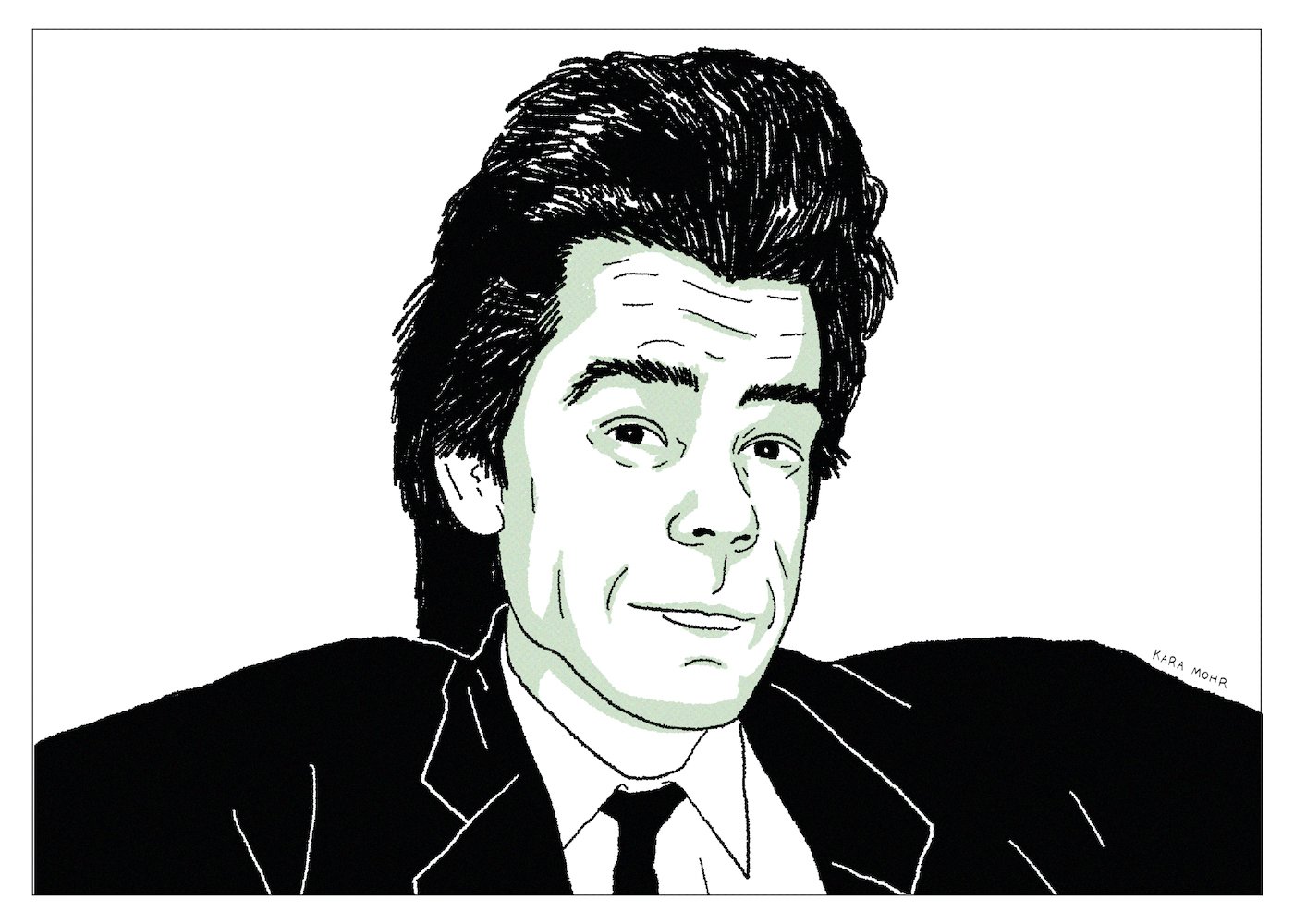
Buster Pointdexter “Buster’s Spanish Rocketship”
The prevailing discourse has always been that Buster Pointdexter was “the act.” That the tuxedo, giant pompadour, martini glasses, Jump Blues, and Eighties Club Med by way of Fifties Havana vibes was David Johansen having a go at everyone. That ten years after the demise of The Dolls — the world’s greatest band that never had a chance — and years after working his way around the world with the David Johansen Band and ending up exactly where he started (nowhere), he needed to make us laugh so we wouldn’t cry. Buster Pointdexter was supposed to be a serious good time, but also in no way serious. It was a gag. A costume. Closer to Tenacious D than to The Dolls. But what started out as a lark — a mildly embarrassing side hustle even — became a career. What’s more, Buster was not a phase. He was not an alter ego or an id. Looking back now, Buster Pointdexter was the thing.
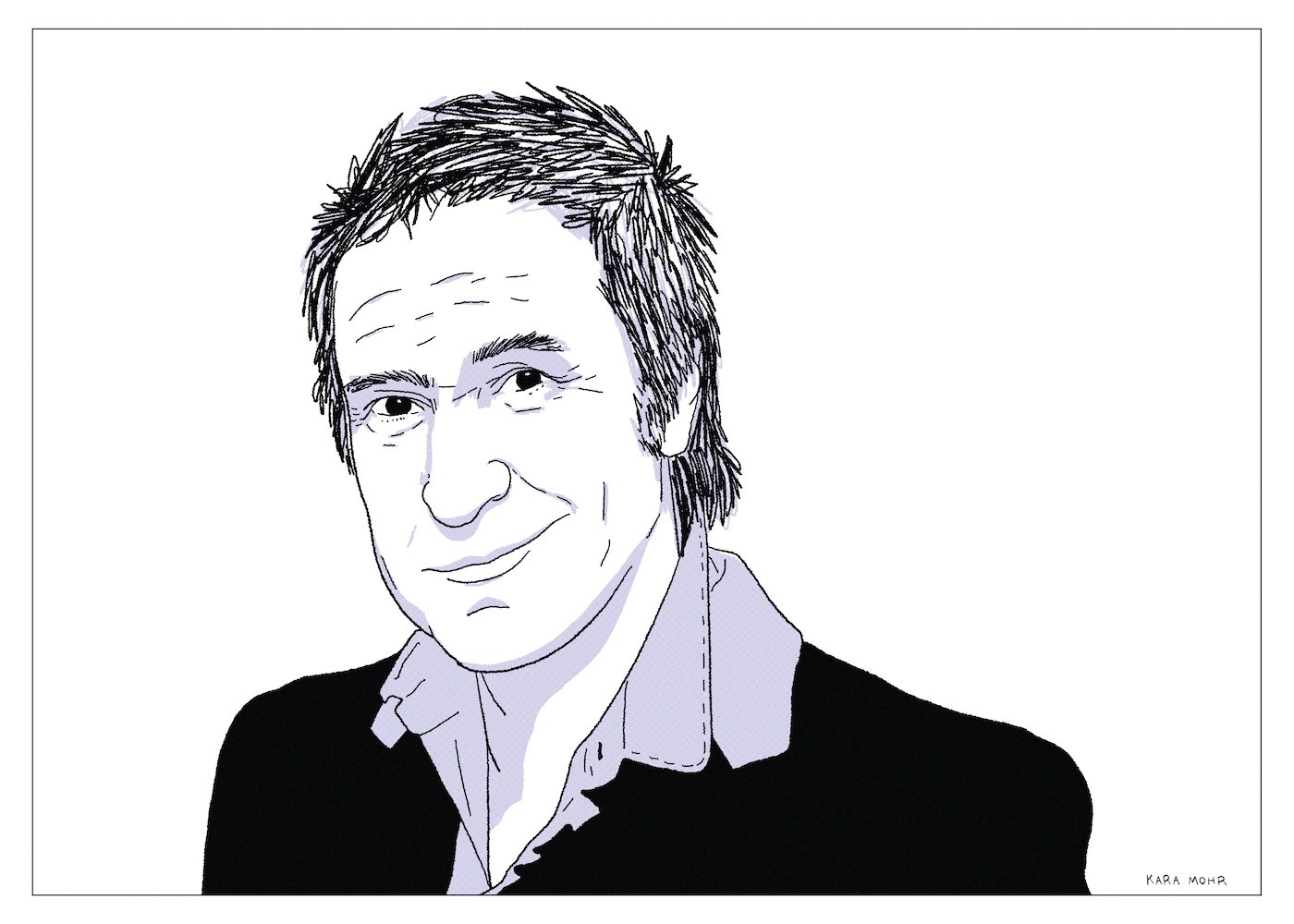
Ray Davies “Americana”
As a musical style, Americana suggests something in between “Roots Rock” and “Alternative Country.” Stylistically, it's a fertile if ultimately narrow genre. But, Ray Davies’ “Americana” is not Whiskeytown’s “Americana.” Davies’ is as expansive as it is deep. It considers both the United States of America and the land mass that predated the country — the massive mountain ranges and the canyons and rivers and the natives and the cowboys. The freedom and independence and capitalism and Jazz and Blues and Soul. The New York and Los Angeles and high hopes and dashed dreams. All of it. The man who wrote “A Well Respected Man,” “Waterloo Sunset” and “Village Green Preservation Society” — the singer-songwriter who satirized and romanticized English life was enraptured with America. England consumed his mind, but America held his heart.
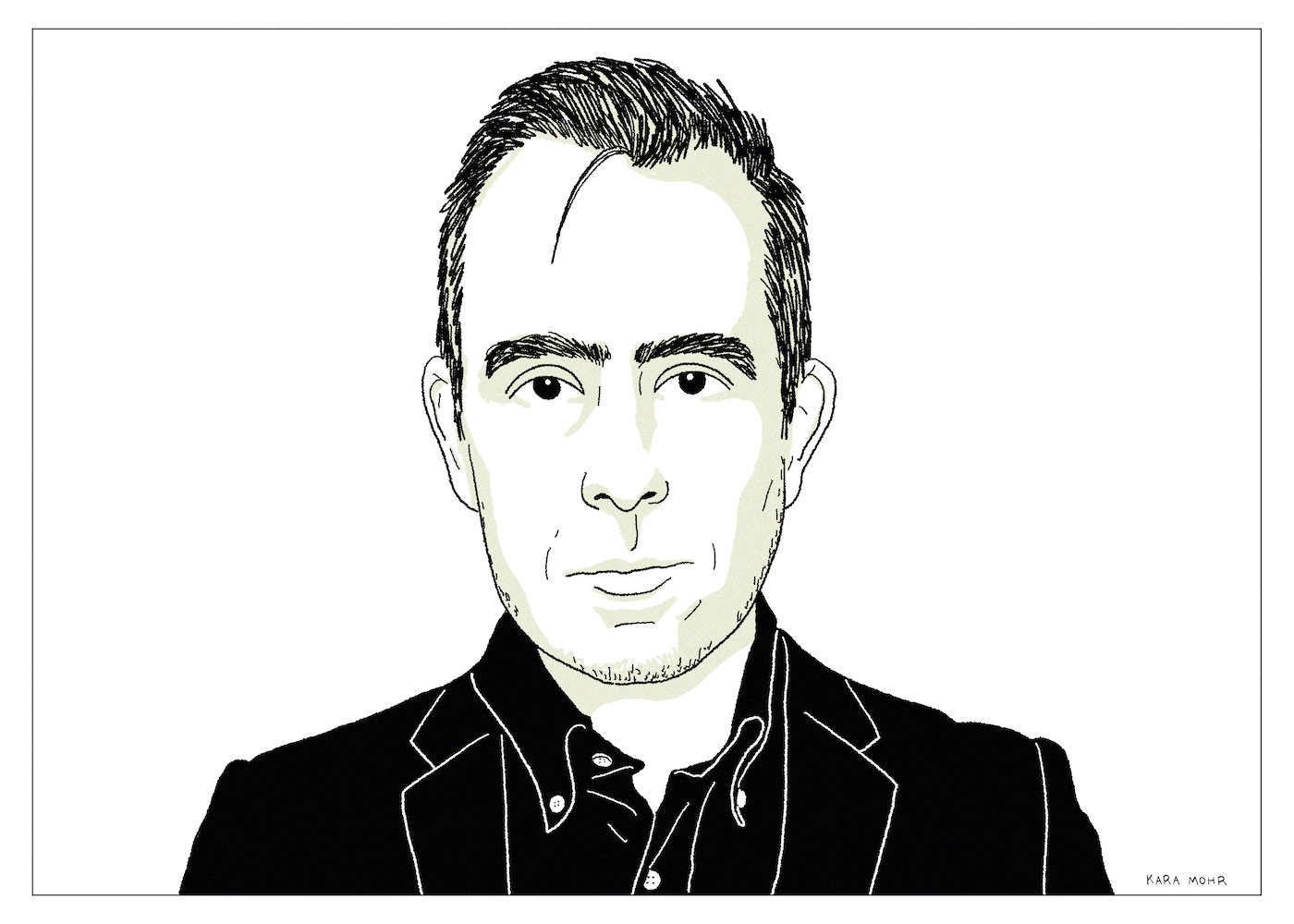
Ted Leo “The Hanged Man”
From 2000 through 2010, Ted Leo was the mainest of Indie Rock mainstays. He and his band released a string of reliably thrilling albums, distinguished by his breathless tenor and progressive politics. Ted Leo and The Pharmacists were so excellent, in fact, that it seemed a foregone conclusion he would one day break through. That Ted Leo would eventually be an important, prestige act felt inevitable. After all, they had their Billy Bragg and their Elvis Costello, so we could have our Ted Leo. He was simply too good — too musical, too smart and too hard working — to imagine any alternative. The sparkling reviews continued along with the steady uptick in sales, until he reached the height of sub-popularity. And then, just when we assumed something monumental was about to happen for Ted Leo, it did. But it was not at all what anyone expected.
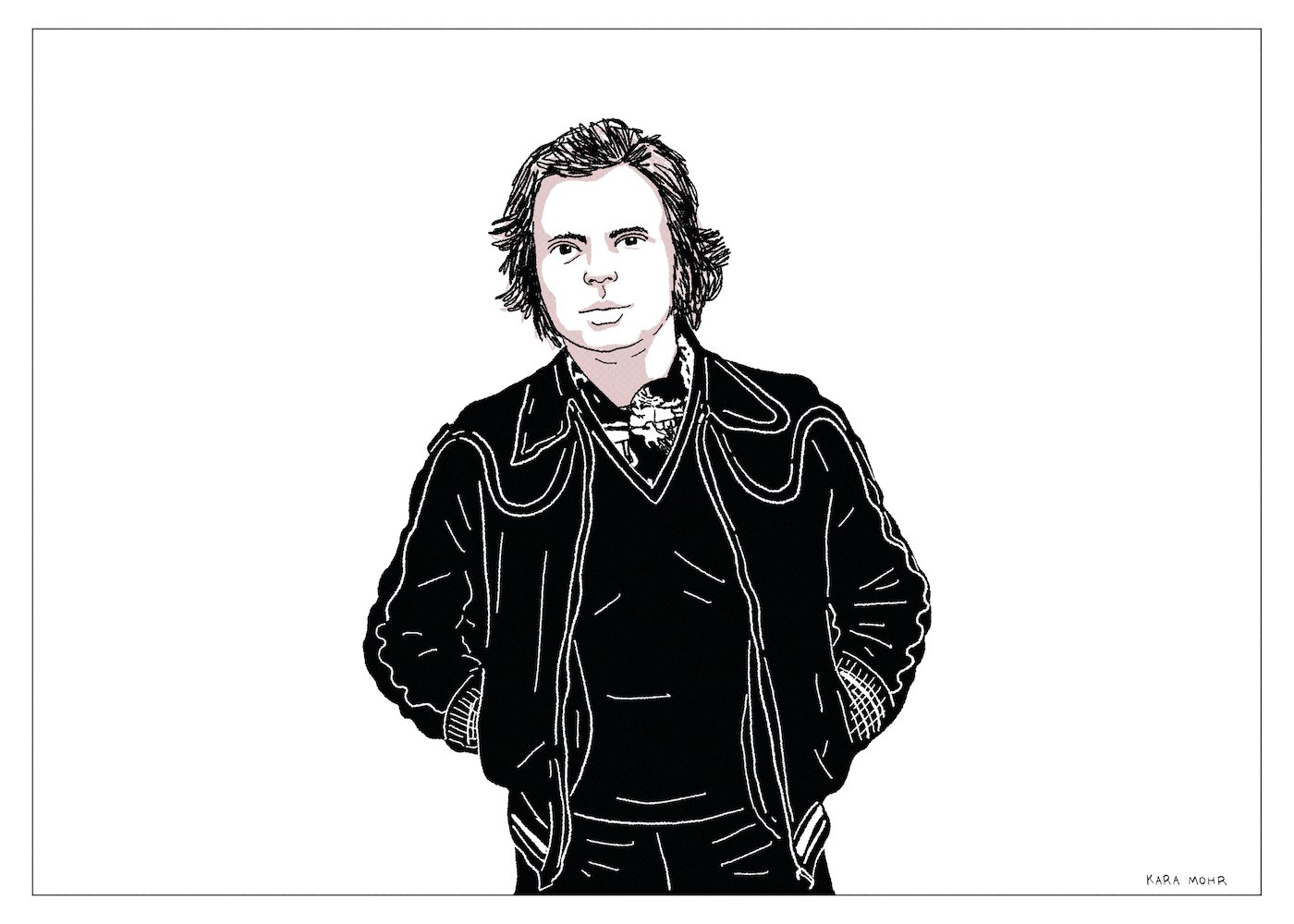
Van Morrison “The Album Covers”
Before he became a craggy, portly Soul man in fedoras and suits, before he was a grumpy anti-lockdown militant, before the Skiffle record and the Facebook rant and a song so profoundly sad (“Pretending”) that it was somehow more depressed than his song about walking out on a friend with tuberculosis (“T.B. Sheets”), before the healing and the silence and the hymns, and before he stuffed himself into that stretchy leisure suit get up for “The Last Waltz,” George Ivan Morrison cared deeply about his album covers. But that was then. Today, Van survives as the artist whose album cover art most betrays the product contained within. His obsession with “tone” and “feel” is surpassed only by the depth of his disdain for the art that adorns his music.
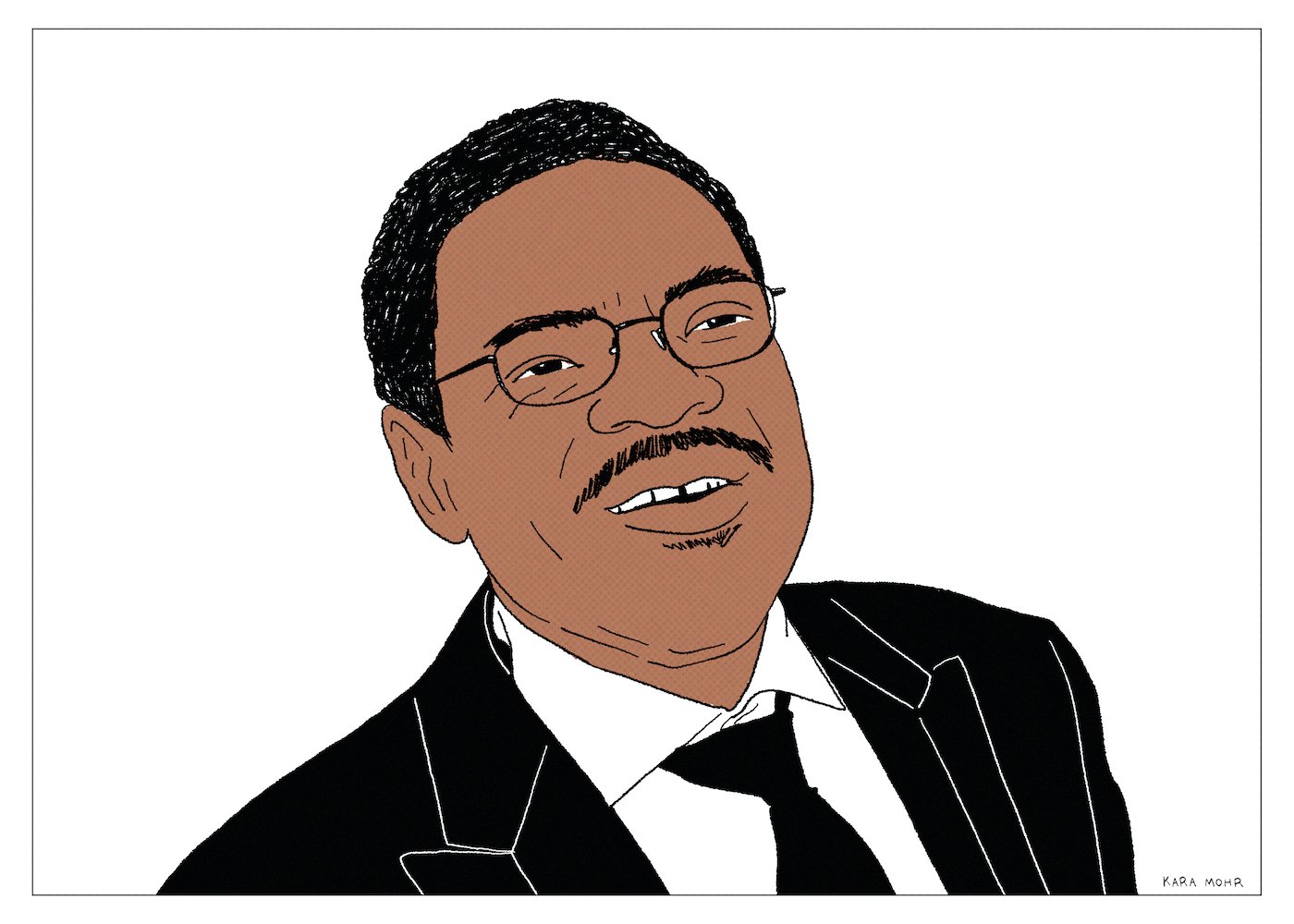
Billy Preston “You and I”
If 1979 marked the end of Billy Preston’s run as a Pop star, it was a beautiful finish. “Late at Night,” his first record for Motown and his last of the decade, found The Fifth Beatle after dark, conjuring a quiet storm. “With You I’m Born Again,” the album’s hit single, was a duet with Syreeta Wright that explained everything from Barbra Streisand to Luther Vandross. By 1982, however, “Billy Preston the superstar” was done. Lionel Richie, Prince and, mostly, Michael Jackson, had taken over his corner. The new music spigot was shut off. Guest work dried up. And, one day, the ubiquitous sideman found himself buried under a mountain of cocaine and bad decisions. And so, in 1997, as legal and financial problems mounted and rumors and innuendo swirled, Preston escaped six thousand miles from the bright lights of Hollywood into the open arms of a past prime Italian Electro Pop group named Novecento.
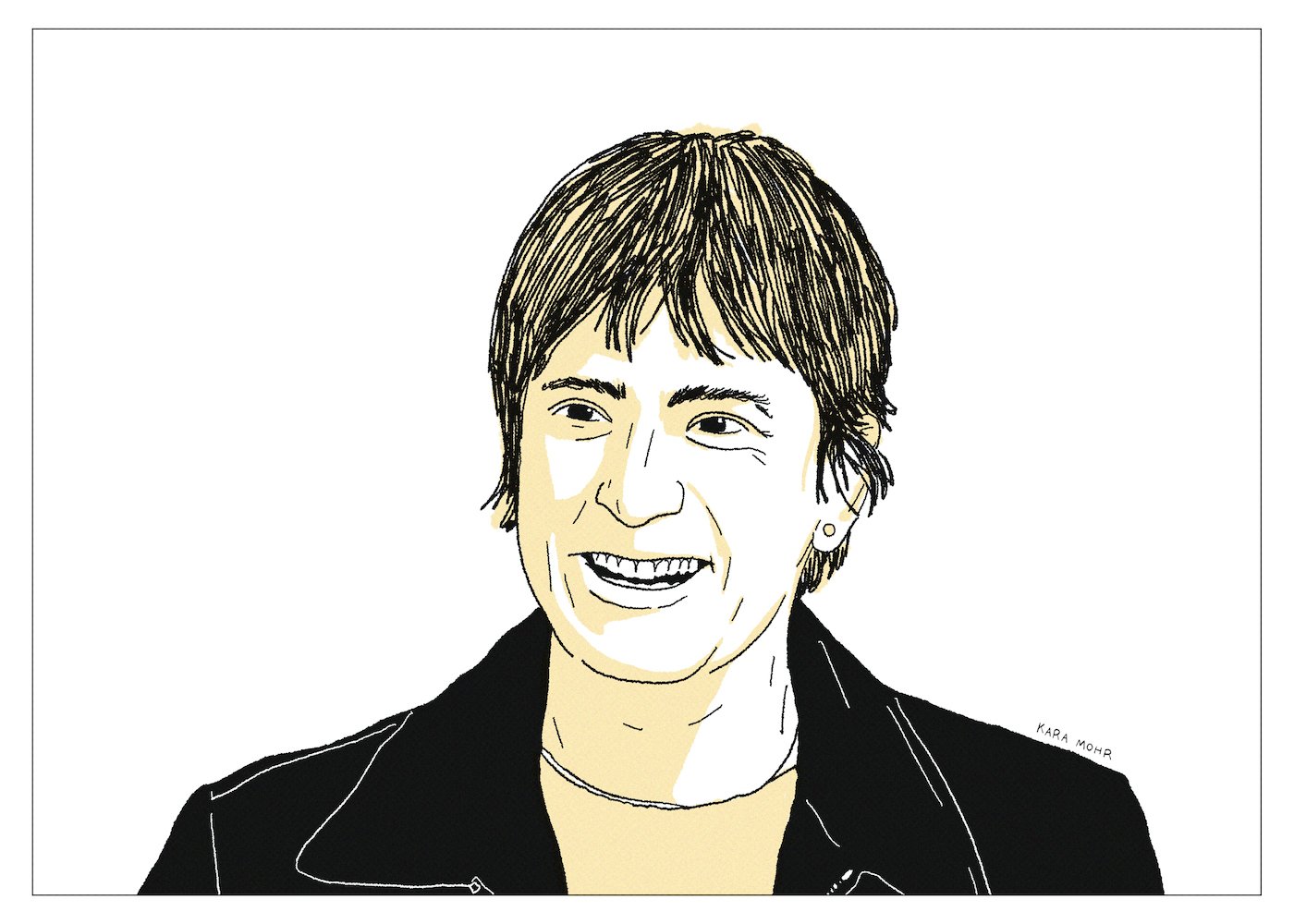
Rob Thomas “Chip Tooth Smile”
While I have been guilty of my fair share of Matchbox Twenty eye rolls, I was also guilty of not really knowing much about the band. They were always something of an enigma to me — a mystery that I couldn’t shake. Except, it wasn’t really the band I was interested in — it was their frontman, Rob Thomas. I had read all the facts (Wikipedia) and heard all the albums (four with Matchbox Twenty and four solo), but I still had zero clue. Was he more Adam Duritz or Ed Kowalczyk or Stephan Jenkins? Or was he my generation’s answer to Phil Collins and Lionel Richie? Generally speaking, time is the enemy of Rock and Roll. But it’s a dear friend to writers. Time furnishes us with perspective and evidence. It reveals lies and truths. It separates bad style from bad music and characters from their settings. Also, as Rust Cohle once suggested, time is just a flat circle. Time was very much on my side as I followed the investigation to its logical conclusion — Rob Thomas’ 2019 solo album, “Chip Tooth Smile.”
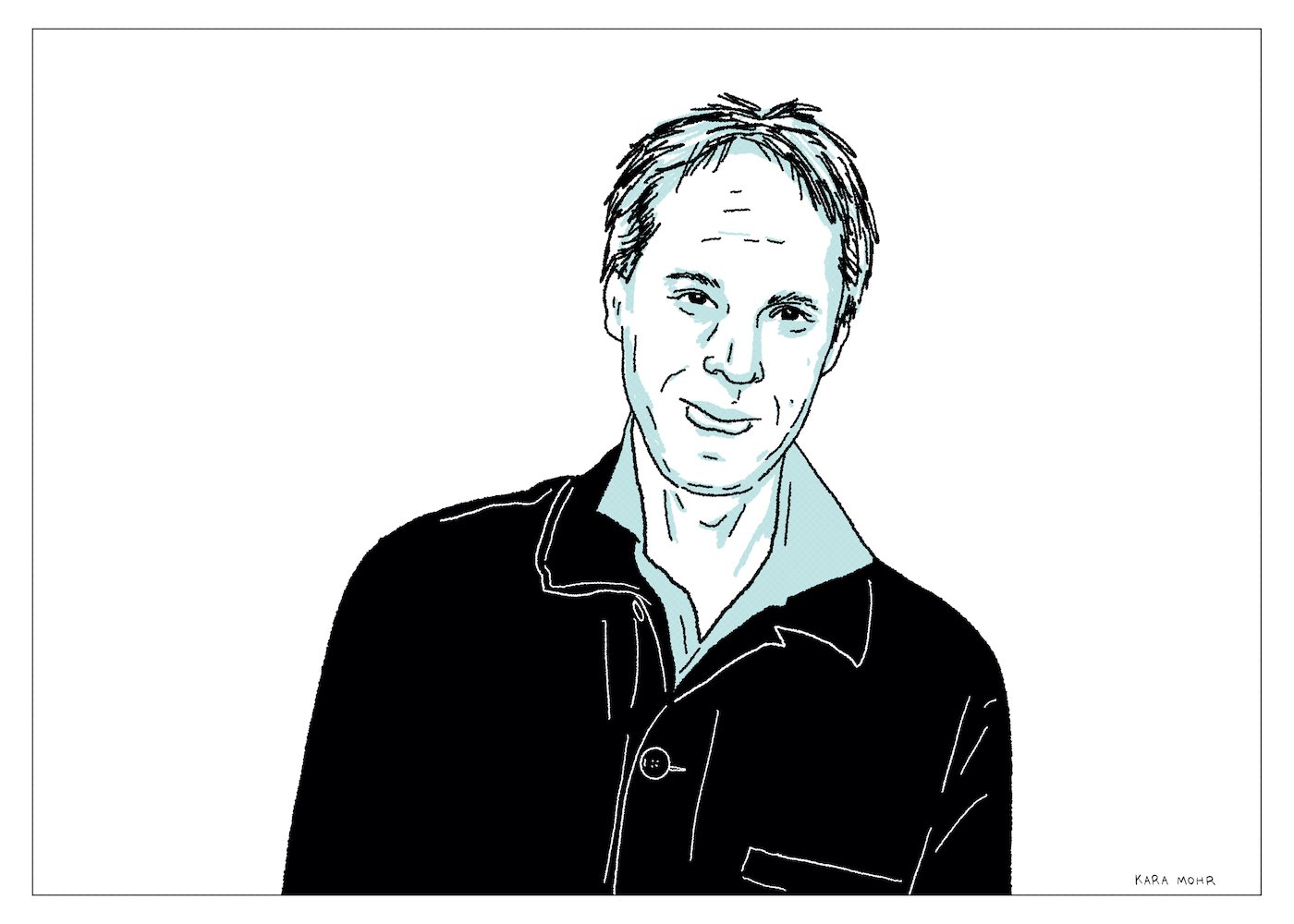
Tom Verlaine (1949-2023)
Of all of the many wonderful things said about Tom Verlaine this past week, the most moving words came, unsurprisingly, from Patti Smith. Her eulogy for The New Yorker, entitled “He Was Tom Verlaine,” was typically elegiac, like a series of black and white photographs narrated with poetic beats and prosaic secrets. Amid the generous obituaries and Twitter tributes — written mostly by strangers — Patti’s essay was so unusually revealing, not because she was betraying any confidences, but rather, because prior to this week, and despite the fact that I spent decades enamored of him, I knew so little about Tom Verlaine. He was not a recluse like Jeff Mangum or an outsider like Syd Barrett or Roky Erickson. But it seemed that, ever since “Marquee Moon” changed everything — and nothing at all — Verlaine was slowly, silently walking in the opposite direction from everything that fans (like me) most wanted from him. His entire career — seemingly confirmed by Patti Smith herself — is a reminder that love is so much more about what we don’t know than what we know for sure.
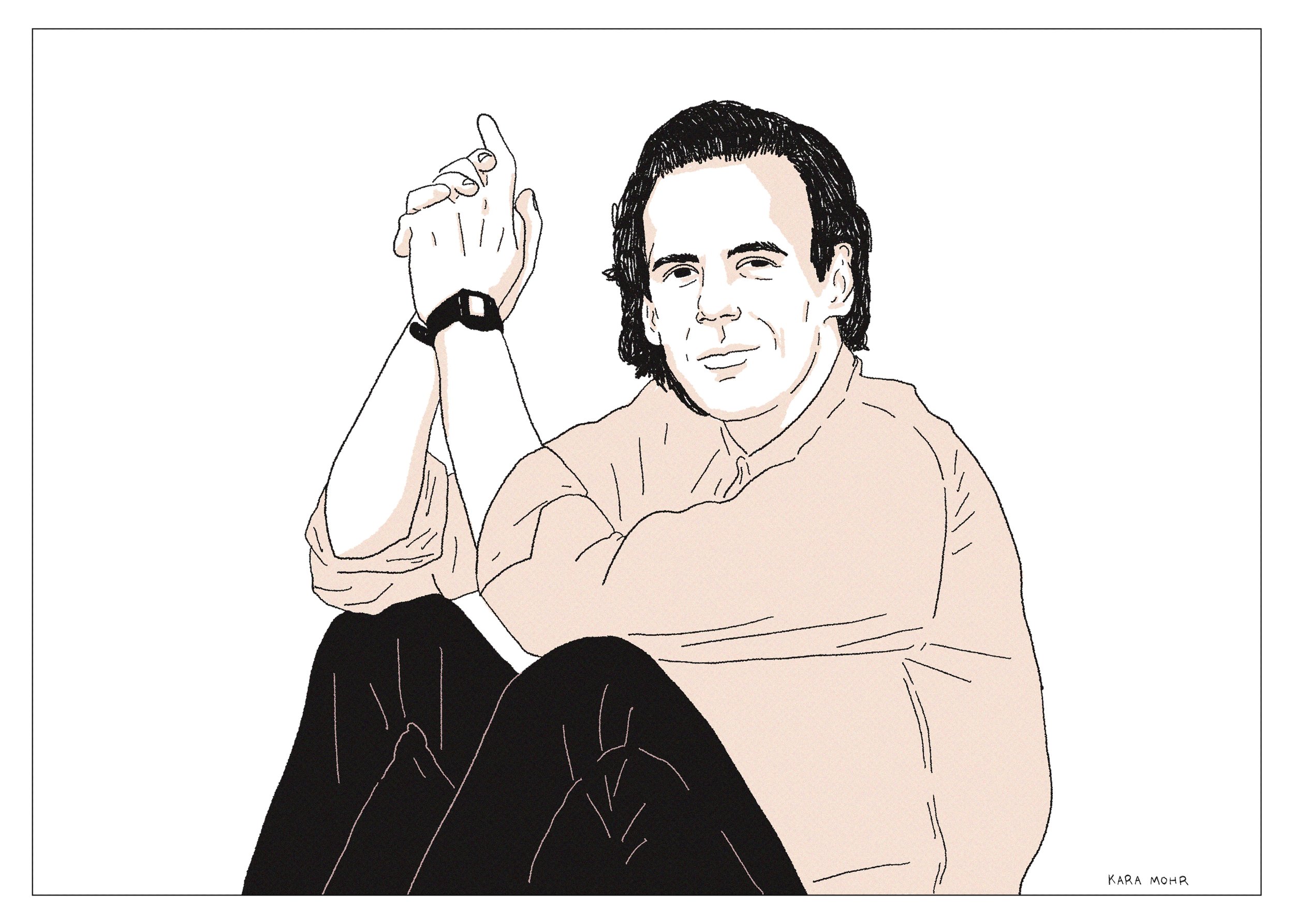
John Hiatt “Perfectly Good Guitar”
There’s a concept in child rearing — and I’m honestly not sure if it’s armchair psychology or actual science or what — called “perfectly adequate” parenting. Its premise is radically simple: that parents should be no more or no less than their child needs. One the one hand, it makes a lot of sense. On the other hand, nobody really wants to be “perfectly adequate.” Not in parenting. Not in life. Not in work. And, certainly, not in music. Pop music is defined by highs and lows. By mania and soul. The road in between is longer, and oftentimes much harder. It’s a workmanlike path — one that is rarely disruptive or revelatory, but is eventually, and amazingly, just right. Richard Thompson is always perfectly adequate. Sometimes more. Never any less. John Prine. Lyle Lovett. Nick Lowe. Always perfectly adequate. But of all the singers I can think of, the one who is most truly perfectly adequate — whose skill is evident, whose records are solid and whose faith and commitment is unwavering — is John Hiatt.
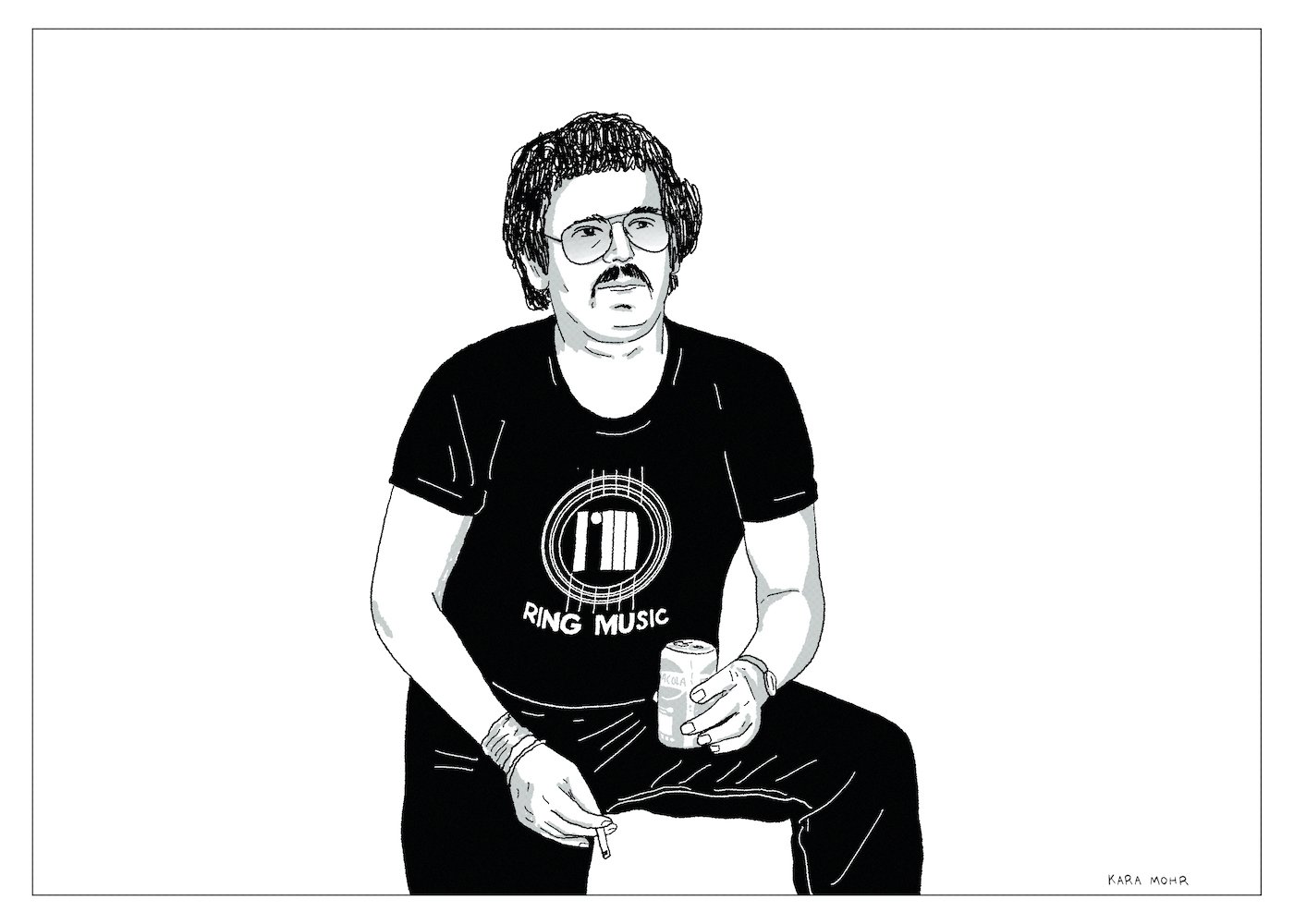
Gordon Lightfoot “Shadows”
To the cynical or the uninitiated, “Shadows” can sound like a Will Ferrell spoof — like music for lovers who refer to each other as “lover.” Like music to be played while wearing cable knit sweaters, sitting by the fire and sipping Canadian Club. But for those who either know Lightfoot’s oeuvre or who are familiar with Seventies Adult Contemporary Rock music, the sound is not unfamiliar. On top of twelve string acoustic guitar, delicate windchimes and lite violins, Gord’s boozy baritone narrates a slideshow about middle-aged resignation and that trip to the Bermuda Triangle. Released the same year as The Clash’s “Combat Rock,” Duran Duran’s “Rio” and Culture Club’s “Kissing to Be Clever,” “Shadows” was miles from anything hip or New Wave. It was the sound of a guy singing to himself, because he had to, because he was tired and lost and the world had moved on. It was the end of the line for Gord’s minor Pop stardom, the beginning of his sober second half and the most interesting album he made after “Sundown.”

Warren Zevon “Sentimental Hygiene”
Following the unexpected success of “Excitable Boy” in 1978, Warren Zevon’s commercial prospects began to fade. “The Envoy,” from 1982, was predictably literate, frequently dark and occasionally brilliant. But, also, it flopped. Within a year of its release, Zevon was a black-out drunk divorcee, dropped from his record label and going nowhere fast. He licked his wounds, tried, failed, tried again, failed again and — eventually — succeeded in getting sober. It would be another five years before he released another album. In the interim, outside of his family, Jackson Browne, a bunch of L.A. session guys and a coterie of writers and critics, Zevon was more forgotten than he was missed. But then, in 1985, while Tom Cruise sashayed around the billiards table like a ninja pool hustler, Martin Scorsese dropped the needle on “Werewolves of London” and people suddenly started talking about Warren Zevon again.
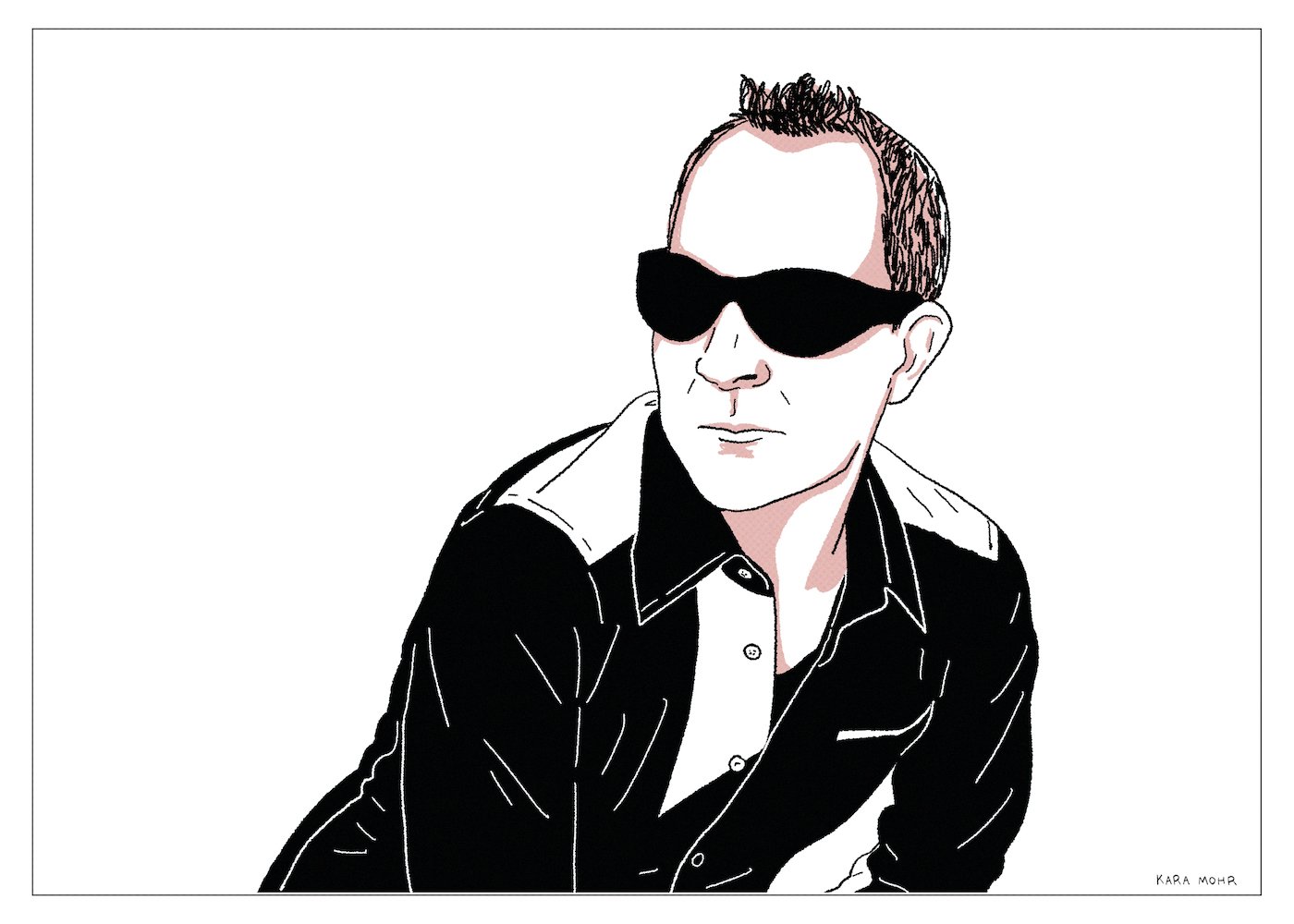
Fred Schneider “Just Fred”
Fred Schneider was an unlikely frontman. For one thing, he either could not or would not sing. Similarly, he seemed more interested in John Waters than in John Lydon. Fred never dreamed of making the next “Like a Rolling Stone.” He wanted to make the next “Monster Mash.” And so he spent over a decade, from “Rock Lobster” through “Love Shack,” blurring the lines between novelty Pop and artsy Rock. But, in 1996, at the very height of Alt, Fred Schneider reemerged as a solo act. During a time wherein “Alternative culture” had become overly serious, it was revealed that “Just Fred” was produced by Steve Albini and featured a cast of stalwart Indie Rock veterans as the backing band. On the surface, it sounded all wrong. No keyboards. No Kate Pierson or Cindy Wilson. No party. It seemed contrarian and willfully provocative, like hearing that sweet, adorable Alyssa Milano — Sam from “Who’s The Boss” — was making a turn into adult, erotic thrillers. But, in the same way that I definitely checked out “Poison Ivy 2,” I was not not curious about “Just Fred.”
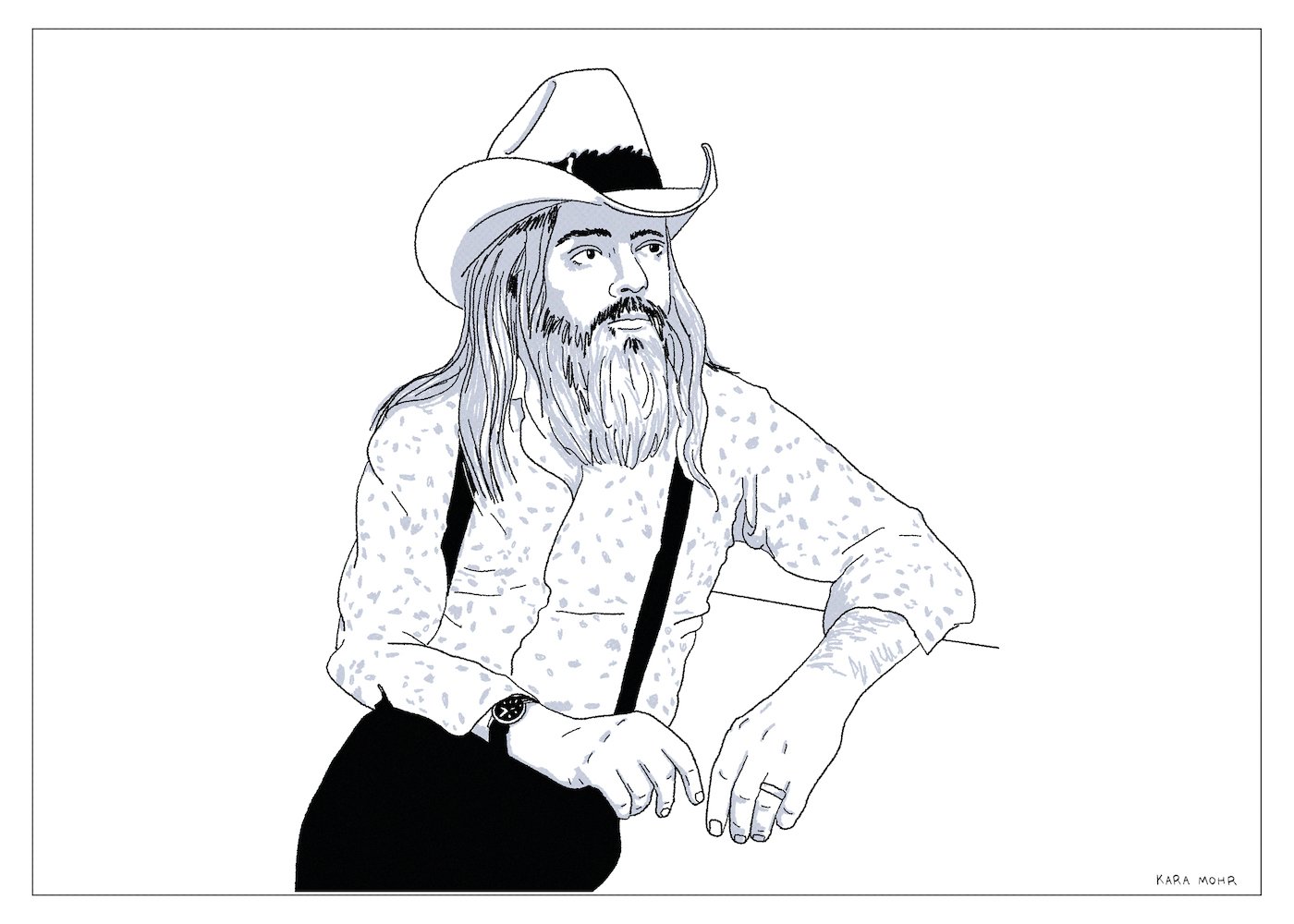
Leon Russell “Anything Can Happen”
Having spent more than a decade building his reputation as the “guy to call” when you needed a guy, Leon Russell was suddenly more than just “a guy.” He became “the guy.” In 1970, after touring with Delaney and Bonnie and releasing a critically adored solo debut, he put on his top hat, dusted off his beard and assembled the greatest live band on the planet for Joe Cocker’s “Mad Dogs and Englishmen” tour. And though the experience nearly killed him (and his bandmates), it marked the beginning of the next phase of his storied career. Whereas during the 1960s, Russell was on the side or behind the scenes, in the 1970s, he was a frontman, gracing album covers, standing center stage, and sharing the limelight with everyone from George Harrison to Willie Nelson. For a natural introvert who was perhaps meant to be a bandleader more than a Pop star, it proved to be too much for him. Depleted and lost, the man who’d released over a dozen albums in the Seventies, eked out only two the following decade. By the Nineties, he was stuck somewhere between the “where are you now” and the “who’s that guy” files. Leon Russell lost his way and then began to fade out, until, one day, Bruce Hornsby came a calling.
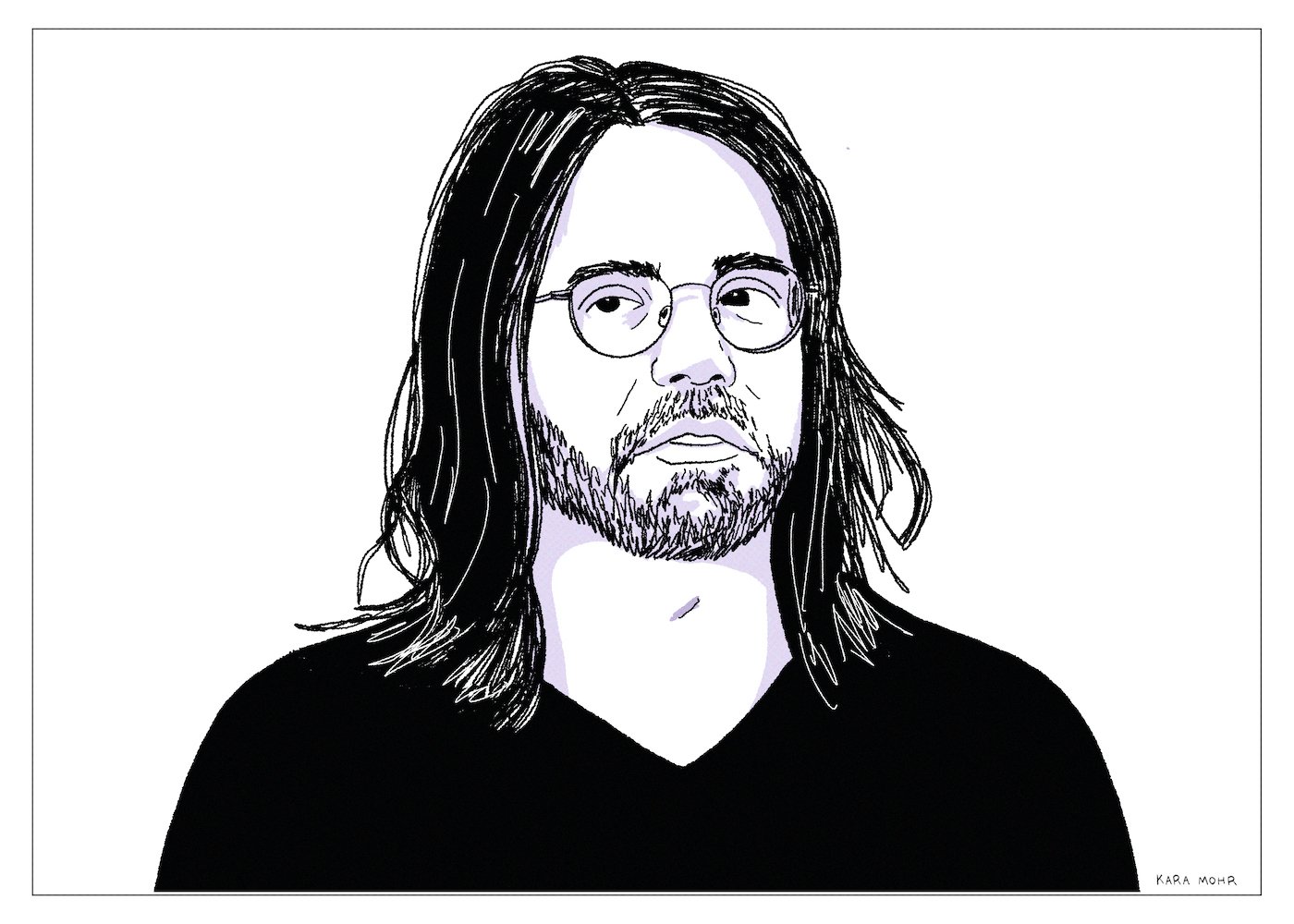
Keith Rainere “Totally Innocent Prog Rock Genius”
According to Nancy Salzman, at some point just before scoring the world’s highest IQ and becoming one of the world’s three greatest problem solvers, Keith Rainere taught himself many musical instruments, including the piano, which he could allegedly play at a concert level. Of the many claims made by NXIVM, I found this one most confounding simply because it is the most disprovable. During the nine hours of “The Vow’s” first season, the only proof we get of Rainere’s musical gift is a brief, middling performance of Beethoven’s “Moonlight Sonata” — a piece generally taken on by younger students in the first few years of their studies. On the basis of this showing, it’s hard not to conclude the obvious: Keith Rainere is no Keith Emerson. So, why? Why did he make such a bold and obviously false claim? IQ tests can be forged. Problem solving is hard to measure. But musical aptitude is hard to fake. The answer to my question arrived in the late Spring of 2019. According to the New York Post, some time after mastering all of those instruments but presumably before breaking the IQ test, Keith Rainere got really into Prog Rock — specifically Yes and Genesis. Which explains everything.
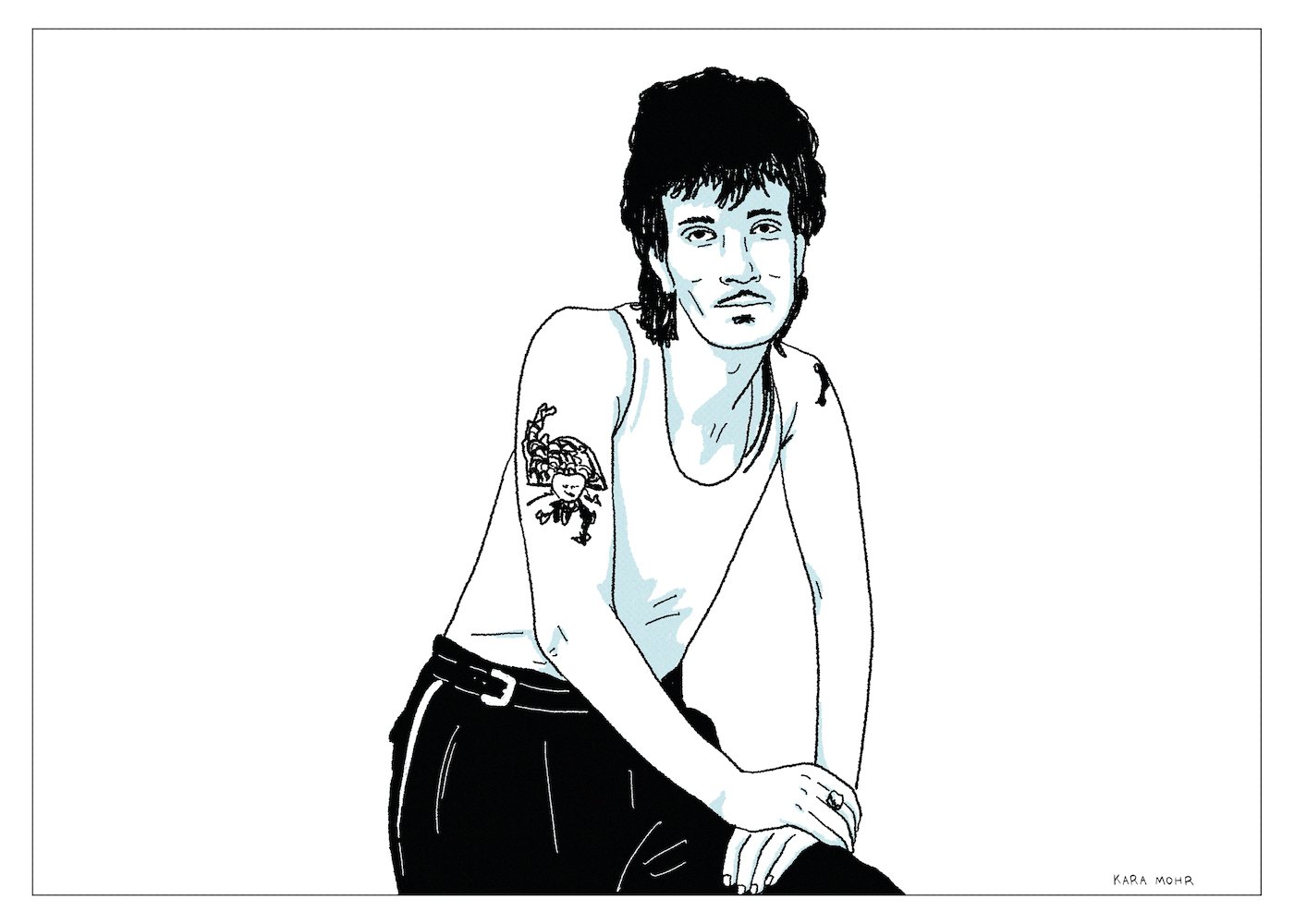
Willy DeVille “Backstreets of Desire”
When Dylan went from folkie hobo to poet in black turtleneck and shades, it seemed like affect. When Bowie went from Ziggy to Thin White Duke, it felt like an art project. And when Madonna went from Material Girl to S&M Barbarella, it came off like a marketing stunt. But Willy DeVille was the genuine article — a real life shapeshifter. The man born William Borsay Jr., from Stamford, Connecticut, would become a Spanish Harlem pimp, a Bowery gutter prince, a riverboat gambler, and a Navajo mystic. In 1992, somewhere between the Bayou and his eventual return to the Lower East Side of Manhattan, he briefly wound up in Los Angeles. And, in spite of crippling addiction and decades of commercial disappointments, Willy made one of the great, barely heard Roots Rock albums of the decade. “Backstreets of Desire” might read like something from Springsteen’s swamps of Jersey, but it sounds like the Los Angeles that made Los Lobos, Tom Waits and Warren Zevon.
